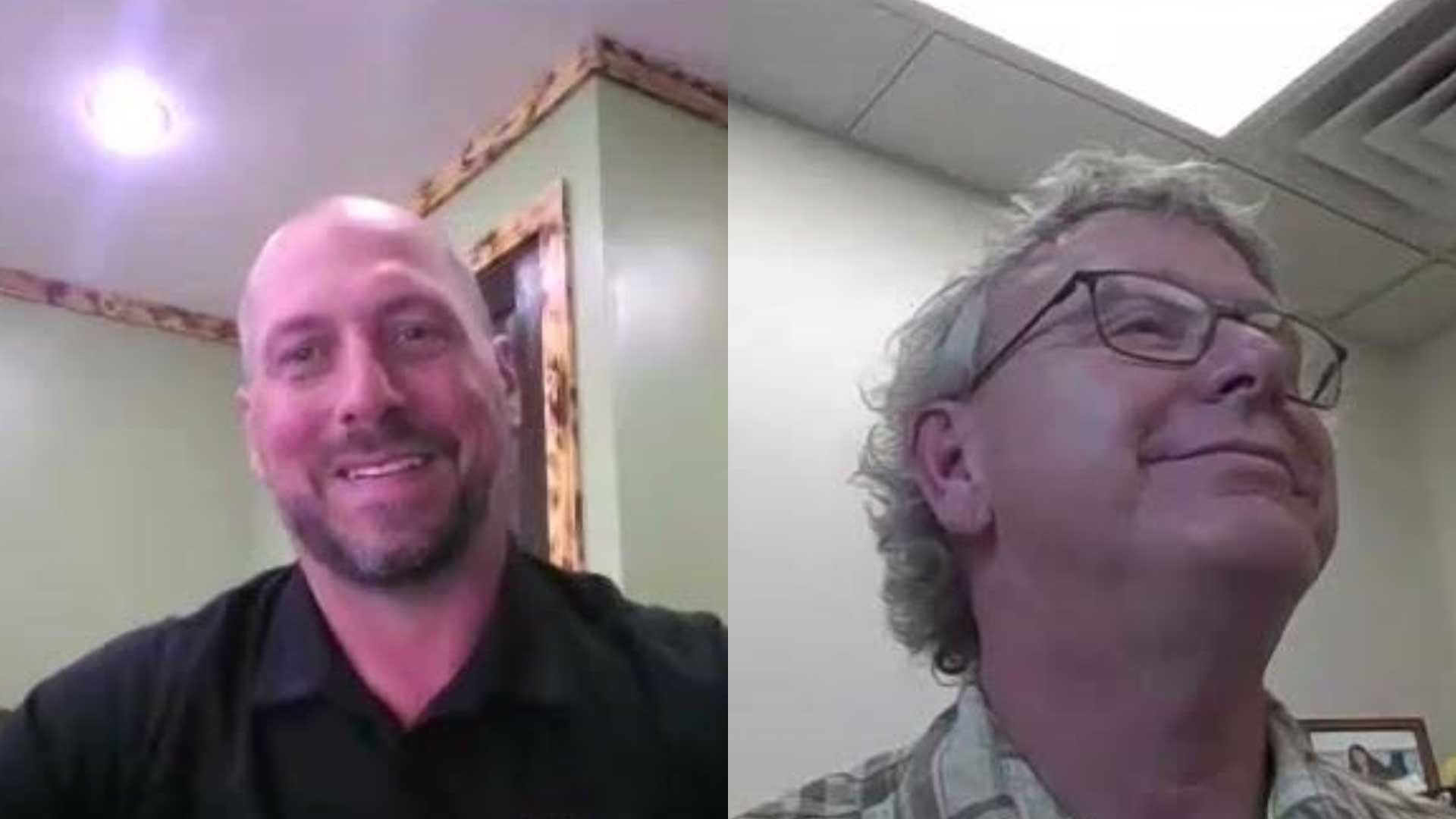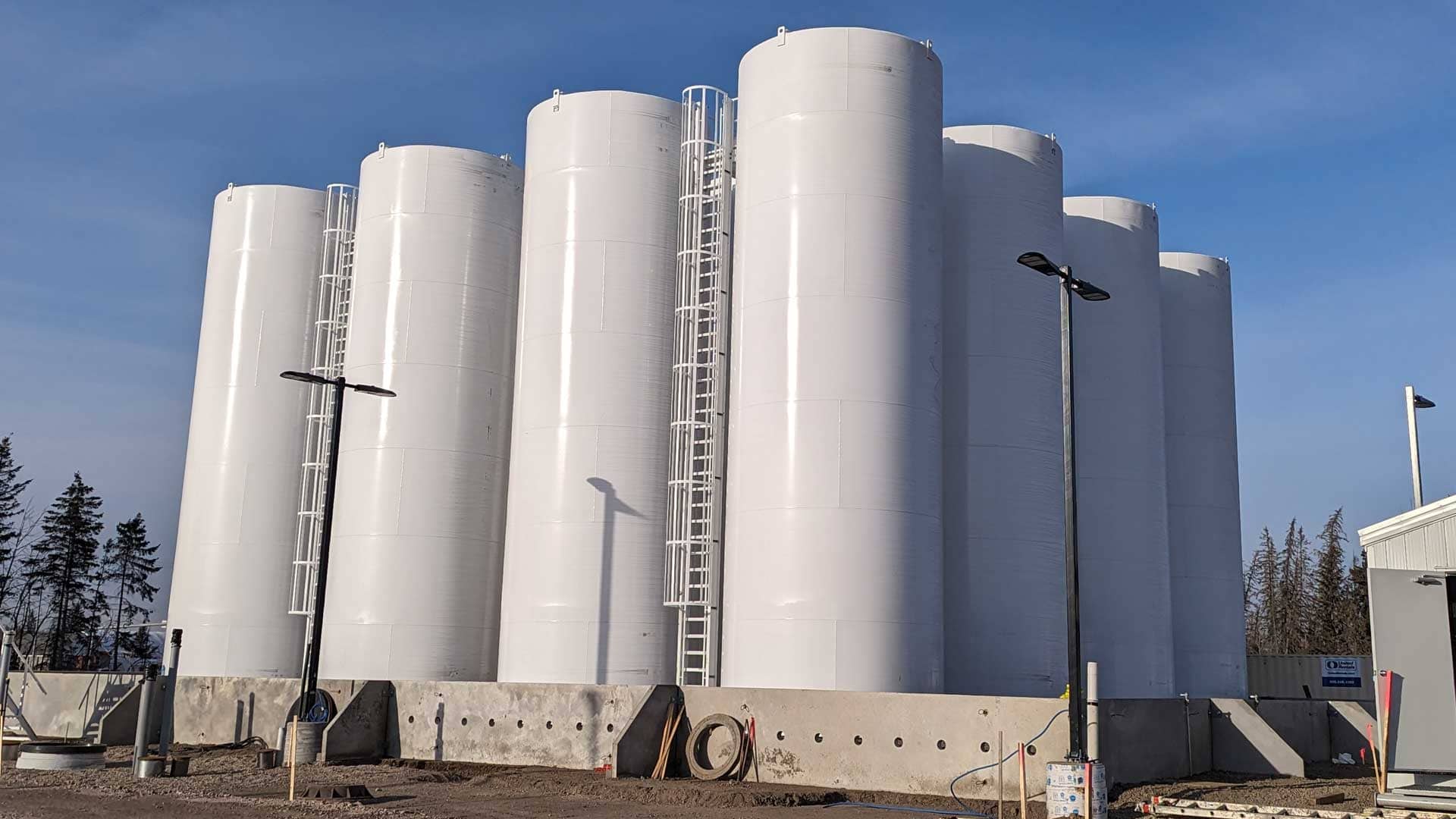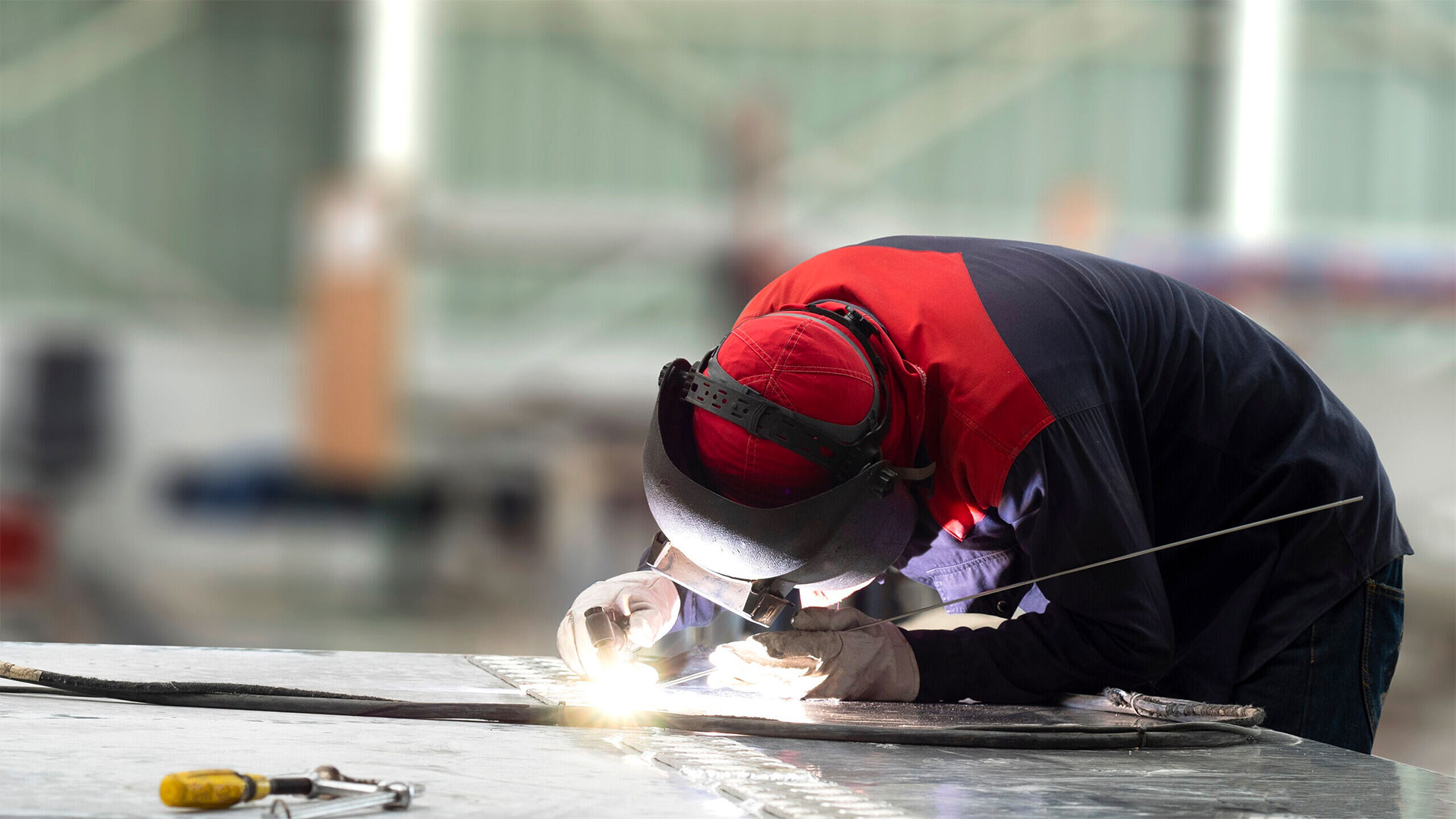Paul Bolin had a successful career as the Vice President of Sales for Kennedy Tank and Manufacturing in Indianapolis for twenty-seven years before retiring. Paul recently joined Dan Yoder, Vice President of Operations and Purchasing at Kennedy Tank and Manufacturing, to discuss his career, leadership, and advice he would give to emerging leaders.

Dan Yoder: My name is Dan Yoder, I’m the Vice President of Operations and Purchasing here at Kennedy Tank. I’m also a member on the STI/SPFA Emerging Leaders Committee.
With me today, I have Paul Bolin, who was the former Vice President of Sales at Kennedy Tank. Paul recently retired at the end of last year.
He was hired by Pat Kennedy in about 1996, if I remember correct.
Paul Bolin: At the tail end of ‘96 to lead the sales effort and help grow Kennedy Tank.
Yoder: During those twenty-eight years here, Paul led the sales team through, I just wrote down a couple things here: He saw some strikes, he saw some economic booms, recessions, global pandemics, and if my math serves me correct, about seven presidential terms and elections. He saw our man-hour backlog at Kennedy Tank go from less than 15,000 hours at times to in excess of 85,000 hours. So needless to say, Paul’s seen quite a bit while he’s been here.
With that being said, Paul why don’t you tell us a little bit about your career at Kennedy Tank.
Bolin: Before I joined Kennedy Tank, I worked for such diverse companies as Procter and Gamble and AT&T. I had a couple of stints with AT&T, a long career with them.
Back in ‘96, Pat Kennedy, who was my brother-in-law, asked me to come head the sales department here at Kennedy Tank. I told him I knew nothing about tanks, frankly, I still don’t. But he said, “Yeah, but you know how to sell, and that’s what we need,” and so I was honored to join the team starting in January of ‘97.
As Dan mentioned, I worked until the end of last year, so I had a 27-year career with Kennedy Tank. Loved every minute of it.
I will say that the first year of my career was perhaps the worst year that we ever had sales wise, and I was questioning myself continuously, have I made the right choice or not. But I hung in there and we came out of that pretty quickly. We had some amazing sales years and profitability years, and I just thoroughly enjoyed working here.
I obviously had a vested interest working for my brother-in-law and ultimately the rest of our family, extended family. I’m so glad that Pat asked me to come here and work. I loved my career at Kennedy Tank.
Yoder: Obviously, you had the family connection, but what else do you think made it special for your time that you spent here at Kennedy?
Bolin: Well, I think that the people made all the difference. I’m a big believer in team and loyalty and building a winning team. We had a lot of people that were here nearly as long as I was, and some even longer. A couple of our salespeople, one in particular, has been here longer than I have, still is here — Jim Dossman.
But I think the people made my career that much more meaningful. We had a lot of people in the right positions. We had a fair amount of turnover over the years, especially in our shop, in our welders, but for every decent person we lost, we ended up getting a very good person in his place.
And so, I think the team as a whole now is so much more talented, dedicated, and creative than when I started.
Yoder: You talked about obviously, Jim Dossman’s been here for a long time. You’ve had several different people work for you in the sales department. How would you describe how you led that sales department and your leadership style over those years?
Bolin: The first thing I did when I came here is to try to get to know everyone. I did know Jim Dossman previously, because he’s a longtime family friend of the Kennedy family. But the other people in the department and the related departments that we all overlapped and dealt with, I made it my goal to get to know them as quickly as I could, so that we all felt part of the team.
Knowing them and knowing their personalities, and knowing their strengths and weaknesses helped me be a better leader, I think. I think it made me figure out their particular styles, what buttons to push, how far to push them, and how much rope to give them for them to be successful.
My goal as a manager, as a leader, as a vice president, was to encourage and support them best they could, to give them the tools they needed to be successful, and I think it worked out pretty well.
Yoder: This is part of the Emerging Leaders Committee, so a lot of this is really to help the next generation, the people that are going to be leading these companies.
Aside from the teamwork, which is something that Pat always drove, and we try to work here as much as we can at Kennedy Tank, what other things do you think make a good leader?
Bolin: I think you need to know your product, at least as best as you can. As I mentioned early on, I still never totally grasped the intricacies of what our job was, what we did.
I knew enough to be dangerous, but what I did do was to involve other people that were product experts or people in their particular department that were involved or important in the whole sales process. Getting estimating involved early, getting engineering involved to make sure that what we were selling made sense and was going to work, making sure that we didn’t overpromise on delivery, making sure that we could get the material and at the price we quoted.
Obviously, that was Dan’s department. He did a magnificent job of getting the materials that we needed in a timely manner and at the pricing we needed.
So, from that standpoint, getting people involved that were the stakeholders in making sure that what I sold or what my salespeople sold was going to work on time and under cost.
Yoder: I’ve been part of some of the big hitter projects that were great, that went off really well. But obviously, we probably had some stuff that didn’t go off so well, some different failures.
Over the years, how did you try to handle some of those failures?
Bolin: Well, you know, it’s kind of a definition of what a failure is. You could say, “Hey, I thought I was going to get that sale, and I lost it,” or, “I promised them delivery in April and it ended up being June.”
I would often do a postmortem on a project that we sold, and especially the projects that we didn’t sell to try to understand why. Why did we lose or why were we late or why did we miss our cost projections as much as we did? And again, that’s where I would bring in the various stakeholders that were involved in the project to try to figure that out.
But in terms of losing a project that I was trying to sell, did it boil down to not knowing the customer well enough, not knowing what their buying criteria were? Not understanding who the competition was or the timing or the price points I needed to hit? There are often a myriad of reasons why you lose, or win a project and, it’s always important to understand both sides of that. Why did we win? Was it my dazzling personality? Well, certainly not, but, more importantly, why did we lose?
Not only I, but the other salespeople that I dealt with, would often go back and sit down and try to figure out why did we lose this and what can we do differently next time, knowing that we’re going to have other opportunities with that same customer, and we often did.
We have dozens and dozens of longtime customers that are very loyal to us. They don’t always buy from us, but when they don’t buy from us, they do tell us why. That’s what you need.
All you want is feedback to understand why you won or why you didn’t win, so you can apply those lessons going forward.
Yoder: Absolutely. So, what is on the flip side of it? That was the bad stuff, but tell me, what do you think was one of your favorite projects that you sold while you were here?
Bolin: We had a project up in northeastern Indiana at a company that recycles plastic called Bright Mark Energy. It was fourteen field erected tanks with lots of subcontractors, and it was a long sales process.
I think we quoted it fourteen times based on minor changes and size differences, or material differences or changing a paint or an insulation. That whole project from start to finish was probably a three-and-a-half-year project. It was worth upwards of $4.5-5 million, one of the larger projects I ever sold here at Kennedy.
But dealing with all of the people from the various suppliers, subcontractors, the customer, their engineering firm, their, private equity ownership group — it was a very complex project, but I had enough support internally that we all made it work.
It wasn’t just me — it was Dan, it was fifteen to twenty other people within Kennedy Tank that ensured that it was a successful project. And it was. It is a company that will do more business with us in the next year or so.
Yoder: Something else, kind of sticking along with the sales front, what challenges do you think the next generation of sales professionals in the pressure vessel and tank industry, as well as the people who are going to be leading those teams, what challenges do you think they’re going to be facing?
Bolin: I think challenges per se, I think just some of the reasons and some of the aspects of being a good leader going forward, I think you’ve got to know your product. You have to know your customer; you have to know what their requirements are.
And then you have all the outside forces. You have, you know, frankly, nature. Mother nature has been a disruptive force that we have, here at Kennedy.
But I also think, you know, the supply side aspect of materials, the timing, labor, you mentioned a couple of strikes, not so much that we had, but we do have a very stable relationship with our union here, and we have to ensure that we have that going forward so that we don’t have a labor disruption. Some of our competitors have had those; some of our suppliers have had really bad disruptions.
The thing is, it’s all about communication with your customer. There are outside forces that we have absolutely no control over. We just have to communicate that news to the customer. Good news, bad news; it’s all about communication, understanding your customer, and knowing your products.
Yoder: Yep. And I can remember I was involved in one of them that we sold over in Ohio in the middle of a Covid where material supply was an issue as well as pricing. You did exactly what you’re talking about where we didn’t actually know what the material was going to cost, and we were awarded the tank. If I remember correctly, it was the single largest stainless steel tank that we’ve ever built.
Bolin: Yes. Absolutely.
Yoder: 90ft diameter if I remember correctly.
Bolin: Is that our friends in Lima?
Yoder: That is our friends in Lima. And you did exactly what you were talking about where we just over communicated almost to the customer to make sure they understood that these things were outside of our control, but we were doing everything that we could, and deliver what we told them we would.
Bolin: And nobody likes bad news. Nobody likes bad news, but nobody likes to be kept in the dark. I did emphasize that to the people I work with and worked for me, and that is be honest, be communicative, and don’t sit around and long finger that information. You have to share with those people and give them the ability to react. And they appreciate that.
We’ve been told over and over again, “I don’t like hearing this, but at least you were honest with me, and I appreciate it.”
It doesn’t always come with a rosy outcome, but, more often than not, you can figure it out and work it out.
Yoder: Great advice. So on the idea of advice, what is one thing you wish someone would have told you early on in your career journey?
Bolin: Not to get bogged down in the minutia.
I thought based on my career with AT&T, that managing information and reports and raw data was every bit as important with Kennedy Tank as it was with my previous employers. Not so much.
I needed to take more of a 30,000 foot view of what my job was and how the sales and estimating departments merged and melded with the rest of the company. I did get bogged down in detail.
And not that I’m overlooking that now, or regret that I did that — it has its place. Information and information management is important. It has its place. But it’s a little bit more of a step back and look at the bigger picture. I should have done that a little earlier.
Yoder: What do you think the benefit might have been if you heard that advice and took that advice? How do you think it could have changed things?
Bolin: Well, I think I could have looked at what my little universe was as it related to the company, our customers, the industry, a little bit more in a little bit more pragmatic way.
I eventually got there, and I don’t want to minimize the importance of being detail oriented and keeping good records and information, because that’s critical to this job, to this industry.
But I think, I wish I would have known, and I had been a little bit more reactive that way earlier.
Yoder: Good advice.
That was obviously really tilted towards kind of the sales team, but just general emerging leaders that are in our industry, you know, obviously we know a lot of these people are going to be watching us from tank manufacturers, pressure vessel manufacturers, some heat exchanger manufacturers, field tanks, shop tanks — what advice would you give from the shop leadership to just the general management of those companies as we look forward?
Bolin: Kind of a blending of several things I’ve talked about. Know your customer, know your competition, know your employees, and know and make sure that they know that they are valued. Pay attention to what they’re saying and their input and thank them for their input and thank them for their interest.
The people that work here, and I’m sure other companies within STI/SPFA have wonderful employees that are dedicated. And it’s more than just a paycheck. They want to be successful. They want their company to be successful.
Giving advice to emerging leaders — listen to your employees. Know your product, know your competitors, know your industry, and apply those things. And more often than not, you’re probably going to be successful.
Yoder: It’s good, solid advice.
That’s all the questions I have for you. I’d just like to close with saying thank you for everything that you’ve done, not only for Kennedy Tank, but Paul’s also very involved with TEMA throughout the years on our heat exchanger side. He’s helped several different associations along for this twenty-seven, twenty-eight years that he was involved.
So, thank you very much for everything you’ve done here, and thanks for your time.
Bolin: I appreciate being asked to participate. I’m honored.
I wish you, Dan, Kennedy Tank, but also, STI/SPFA nothing but success.
Thank you very much.






